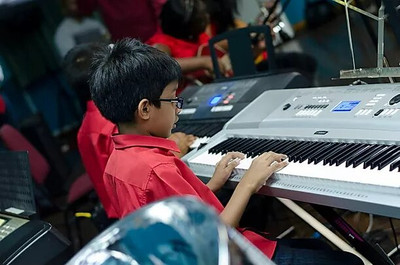Why start Music Young?
Lisa Darmanie, Founder/Director Alabanza Music on 30th Sep 2015

Why Start Young?
It is now widely accepted that there are direct correlations between musical study and verbal competency, motor and auditory skills, reasoning abilities and problem solving - essential abilities that children take into adulthood.
Musical experience promotes brain development
Findings in a 2009 study featured in the Journal of Neuroscience showed for the first time that musical experience for as little as 15 months in early childhood leads to structural brain changes and results in improvements in motor and auditory skills (Hyde et al. 2009, Journal of Neuroscience 29(10): 3019-3025).
Music contributes to academic success
Researchers at the Boston Children’s Hospital worked with magnetic resonance imaging (MRI) and found early musical training enhances the areas of the brain responsible for executive functioning. Children with at least two years of private lessons showed enhanced cognitive control, with aids in information retention and behavior regulation. “Musical training may actually help to set up children for a better academic future,” said Senior Investigator Nadine Gaab, PhD, of the Laboratories of Cognitive Neuroscience. (June 2014)
Musical training correlations to verbal competency
A Stanford University study showed that mastering a musical instrument improves brain processing in areas associated with language development, and may have implications for improving language/reading skills (Gabrieli, John, http://news-service.stanford.edu, Nov. 2005).
Practicing a musical instrument improves auditory discrimination and fine motor skills
A Harvard-based study found that children who receive instrumental music training for three years or more outperform their control counterparts in areas such as fine motor skills and superior discrimination in melodic/tonal and rhythmic discrimination abilities. (Schlaug, G, Norton, A, Overy, K, Winner, E. 2005 Annals NY Acad of Sciences 1060).
Music and character development
In addition to cognitive skills, study in the arts develops character traits such as discipline, perseverance, teamwork, patience, self-control, problem solving, and empathy.
This research has been compiled by Community School of the Arts (CSA) at Wheaton College, Wheaton, IL. http://www.wheaton.edu/CSA/Lessons/Long-Term-Bene...




